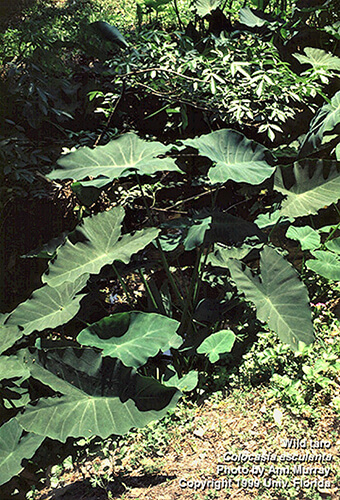Wild Taro

Florida-Friendly Landscaping™ in a Minute
Episode Archive
Episode #417 | Original Air Date: December 20, 2022
Related Resources
Transcript
The wild taro is an invasive exotic plant often found near shorelines or in water bodies.
This plant, originally from South Asia, closely resembles other plants in Florida like native arums and duck potato. But unlike these other species, wild taro is considered an aggressive weed.
It forms dense stands along river and lake shores, displacing native shoreline vegetation and disrupting the habitat of Florida animals.
Don’t purchase wild taro from a nursery. If it’s already in your landscape, remove it before it has a chance to spread any further. If you’re not sure whether a plant is wild taro, take a sample to your county Extension office for identification.
Florida-Friendly Landscaping™ in a Minute is a production of the University of Florida’s Florida-Friendly Landscaping™ Program, IFAS Extension, and WUFT-FM in cooperation with the Florida Department of Environmental Protection.

